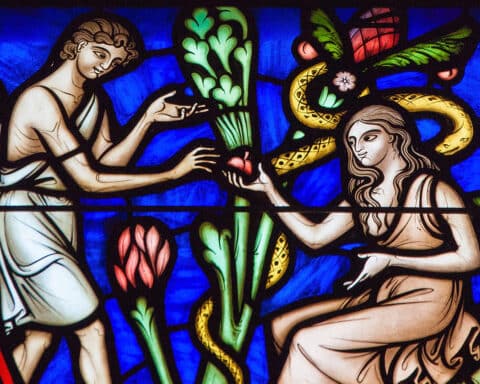A boggy marsh: This is how Dante imagines the reality of anger in his “Inferno.” Greed looks like the eternal weight of a heavy stone pressing against one’s chest. Our readings for this Sunday present these sins in contrast to the blissful happiness of forgiveness.
Matthew’s Gospel offers us other images. Sin, in Matthew 18, is likened to a debt. Indeed, sin is a lack — it is lacking in love. In contrast, Matthew 18 likens the kingdom of heaven to the forgiveness of all debt, of all sin: “Moved with compassion the master of that servant let him go and forgave him the loan” (vs. 27). This imagery gives us a way to envision sin and forgiveness for what they truly are.
In fact, if we might make a brief scriptural tangent, we could look to the prophet Hosea for an even stronger image of sin and forgiveness, also delineated through a financial transaction. Hosea’s wife, Gomer, leaves him for a life of prostitution (cf. Hos 1:2). The Lord tells Hosea that he should go and purchase his wife back — he must literally redeem her as he returns to purchase her in the place she worked. “So I acquired her for myself for fifteen pieces of silver and a homer and a lethech of barley” (Hos 3:2). Imagine how Gomer must have felt in response to such an act of forgiveness!
| September 17 – 24th Sunday in Ordinary Time |
|---|
|
Sir 27:30–28:7 Ps 103:1-2, 3-4, 9-10, 11-12 Rom 14:7-9 Mt 18:21-35 |
Returning to the readings for this Sunday, we are asked to do likewise. Sirach tells us: “Forgive your neighbor the wrong done to you; then when you pray, your own sins will be forgiven” (Sir 28:2). And Christ himself teaches us to pray this way: ” [Our Father…] forgive us our trespasses [our debts, our sins!], as we forgive those who trespass [or debt or sin] against us” (cf. Mt 6:12-14).
The Catechism of the Catholic Church calls this particular petition of the Our Father both “astonishing” and “daunting” (Nos. 2838, 2840). Both of these descriptors are tied to the small word, “as” that connects the two parts of the petition: “Father … forgive … as we forgive.” Indeed, as the Catechism points out, this little “as” echoes across the Gospels: “Love one another as I have loved you”; “Be perfect as your heavenly Father is perfect.” Perhaps, we begin to see the astonishing and daunting character of this petition for forgiveness! This “as” is no small task; it is nothing less than our conversion and our growth in holiness.
To delineate this, the Catechism dramatizes our praying of the Our Father: “With bold confidence, we began praying to our Father. In begging him that his name be hallowed, we were in fact asking him that we ourselves might be always made more holy. But though we are clothed with the baptismal garment, we do not cease to sin, to turn away from God. Now, in this new petition, we return to him like the prodigal son and … recognize that we are sinners before him. Our petition begins with a ‘confession’ of our wretchedness and his mercy. Our hope is firm because, in his Son, ‘we have redemption, the forgiveness of sins'” (No. 2839).
This confession of sin and petition for forgiveness is the first step in “doing likewise.” Returning from the heavy and marshy prodigality of our sin through confession, we desire mercy and forgiveness. We desire God’s kingdom. Thus, we must love “as” the king loves, and so we must forgive “as” he forgives through an imitation of God’s mercy. God’s “outpouring of mercy cannot penetrate our hearts as long as we have not forgiven those who have trespassed against us. Love, like the Body of Christ, is indivisible; we cannot love the God we cannot see if we do not love the brother or sister we do see” (Catechism, No. 2840).





